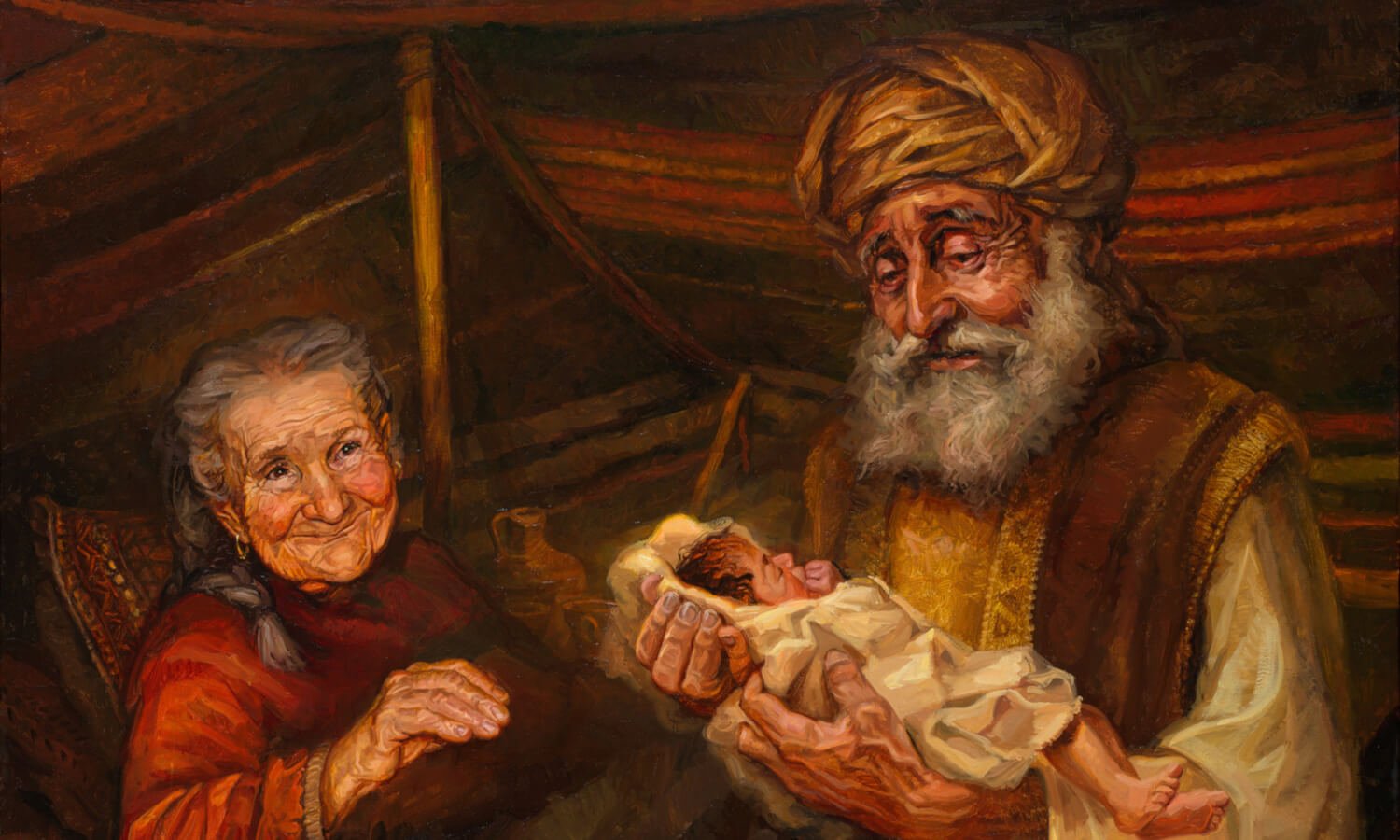
The Bible mentions Sarah (or Sarai, as she was originally known) frequently, mainly in the book of Genesis. However, the New Testament also makes a few mentions of her.
Historical context
Around 1800 BC, Sarai was born (see timeline). Her name, which translates to “princess,” is first recorded in Genesis 12 in the Bible. At this point, Abram (later Abraham), her spouse, is introduced to us. Through Sarai, God had intended for Abram to be the father of the Jewish people. Nevertheless, they were childless when God summoned Abram.
Sarah’s life
When God summoned Abram to leave Haran and travel to the place He would show him (Canaan), he was seventy-five years old. Sarai was ten years younger than Abram, who was sixty-five, at that point. She felt humiliated of not having children in those days, and other ladies would frequently make fun of or look down on her for it.
Sarai was undoubtedly still very attractive at the age of 65, and Abram urged her to declare their sisterhood on at least two occasions so that the local men would not harass or mistreat Abram because of his wife. (Genesis 20:1–18; Genesis 12:10–20)
Even with this limited view of Sarai’s life, it is clear that she was obedient and subservient to her husband, even when doing so put her in danger or placed her in precarious positions. God spoke up for Sarai on the two instances that are described, exposing Abram’s deception and keeping her safe from any men who might have had ill intentions toward her.
Though she must have been aware of the promise that God had given Abram, Sarai must have understood that she could not possibly conceive a child. Nevertheless, in an effort to support Abram, she offered him her servant in lieu of a marriage, maybe with the intention of starting a family through her (Genesis 16). Hagar, the servant, was filled with humiliation, dishonor, and feelings of inadequacy when she found out she was pregnant. This made her hate Sarai, who was incapable of becoming pregnant.
Sarah eventually had a child
Sarai was ninety years old when the promise of a child finally came true, having to wait a total of twenty-five years. Additionally, God had given her the name Sarah and Abram the name Abraham, meaning “Father of many nations.”
When some guests eventually paid them a visit the year before she gave birth to a son, Sarah was busy preparing bread at the tent’s entrance and listening in on Abraham’s talk with them. They informed him that the following year, Sarah will give birth to a son at the same time. Knowing that such a thing was not feasible for humans, Sarah laughed. But “is anything too hard for the LORD?” questioned the guests. She gave birth to a boy exactly one year later, naming him Isaac in accordance with God’s instructions. “Laughter” is how the name Isaac signifies.
Sadly, when Isaac got older, Sarah found it difficult to deal with the presence of Hagar’s son, Ishmael. She became enraged and resentful of Ishmael when she noticed that he appeared to be making fun of and intimidating Isaac. In order to prevent Ishmael from inheriting alongside her son Isaac, Sarah coerced Abraham into sending Hagar and her son away.
After this tragedy, not much is known about Sarah’s life. It is reported that she passed away at the age of 127. It would have been Isaac’s 37th birthday. To bury his wife, Abraham inquired of the locals if he could purchase land. Ephron the Hittite sold the cave of Machpelah to him. There was also Abraham’s grave.
Sarah in the New Testament
- Sarah is complimented in 1 Peter 3:6 for her submission to her husband.
- Hebrews 11:11 – she is praised for her faith.
- The apostle Paul compares freedom and slavery with Sarah and Hagar in Galatians 4. It illustrates how, because we were born into freedom rather than slavery, those of us who know the Lord are likened to Sarah’s children and children of the promise.
- A similar idea—that Abraham’s trust was rewarded—is reiterated in Romans 4:19–22. He held upon his faith in God’s promise despite his advanced age and Sarah’s sterile (or “dead”) womb.
Jesus Christ came through Abraham and Sarah
Through Sarah’s son Isaac, all of God’s promises to Abraham are realized.”You will become a great nation, and I will bless you; you will be a blessing, and I will make your name great.” All people on earth will be blessed through you, and I will bless those who bless you, and I will curse those who curse you (Genesis 12:2-3).
The promise that “all people on earth will be blessed through you” was realized when Christ came to earth and gave His life in order to redeem us. People now belong to God’s family and continue to experience His blessings anywhere in the world.
Some lessons for us
- With God, nothing is impossible. When Abraham first heard the promise from the Lord that he would have a son, Sarah must have been thrilled. However, as the years went by, she must have come to believe that she had been misled or that the likelihood of it was decreasing. Hold onto anything you think God has promised you.
- God keeps his promises, and they will come to pass. God doesn’t operate on our schedule. We must not waver from the promises He has made to us found in His word and have faith that He will keep them.
- Despite the fact that it put her life and chastity in jeopardy, Sarah humblely obeyed her husband. God has commanded us to submit to Him and those in positions of authority. Regretfully, people in positions of authority occasionally make mistakes that cause problems and challenges in our lives. God is able to deliver and protect us, and he is constantly keeping an eye on us. The same way He treated Sarah.
- God never assured His people of an easy existence. We might encounter horrible circumstances such as persecution, injustice, bullying, peril, and terror. Even if it could take longer, those of us who put our faith in God can be confident that He will provide us His blessing.
Thanks to Gospelimages for the painting.





